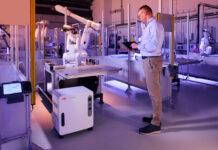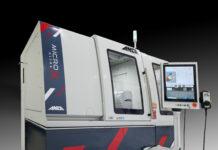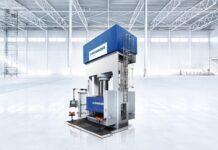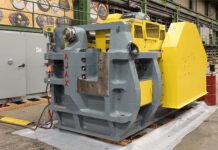
Companies that use plastics in their manufacturing operations are facing a labor shortage. If every unemployed person in the country found a job, we would still have 4 million unfilled positions. According to a recent survey, 38% of executives say attracting new workers is their top priority for the production workforce, followed by retention (31%) and reskilling (13%).
While most companies focus on pay levels and benefits packages when considering ways to attract and retain employees, companies that use plastic assemblies and parts in their manufacturing operations can use automation to make the work more interesting, productive, and safer. And those factors are elements of something that Millennials and Gen Z workers have told survey-takers they value most: “well-being.”
In their surveys of employees, Gallup defines well-being as consisting of various aspects: purpose, social, financial, community, and physical.
Purpose: Plastics Manufacturing Automation Makes Work More Engaging and Enjoyable
Gallup says that liking what you do daily and being motivated to achieve your goals is tied up with “purpose.” A company that adopts automation has more people who wake up in the morning and ask themselves, “how can I make things better and more productive today?” That’s an intriguing question, and such an attitude causes work to be more engaging and fun – like playing and winning a game.
In contrast, people rightly view jobs that simply repeat the same motions over and over again as monotonous and unappealing.
And for companies that use plastic assemblies and parts in their manufacturing, plenty of such repetitive processes exist.
Robots and industrial automation can do such mundane jobs well, allowing people to carry out more creative and higher-value assignments. Overseeing a fleet of robots or a highly automated production environment are roles more appropriate to the human capacities for problem-solving and innovation.
Financial: Automation and Robotics Improve Profitability
Current and potential employees told Gallup they want well-being in the form of financial security to reduce stress in their lives. In today’s competitive environment, companies utilizing plastics in their manufacturing that don’t invest aggressively in automation and robotics will almost certainly fall behind, and their profitability and stability will suffer.
And who wants to work for a company that isn’t investing in the future?
Improved quality brought about by automation enhances the reputation of the manufacturer – an indispensable trait for any firm that wishes to provide stability to its employees.
Will Automation Put People Out of a Job?
What about the often-repeated idea that automation will steal people’s jobs? The same view was widely touted when computers entered the workplace in the 1960s and 70s. And on the one hand, computers made millions of jobs (like telephone operators) obsolete. In fact, a McKinsey report showed that computers displaced 3.5 million jobs from the 1950s to the present. On the other hand, the McKinsey report showed the computer industry created 19.3 million jobs during that same period.
In other words, computers created more than five times as many jobs as they displaced.
Recent studies show that companies that implement robotics and automation grow faster than those that don’t – and consequently, end up hiring more people!
Physical: Manufacturing Automation Makes the Workplace Safer
The recent pandemic heightened people’s concerns about safety in their place of employment and increased fears about their physical well-being. Automation can help alleviate those concerns.
Robots can take on repetitive manufacturing tasks like plastic parts assembly and reduce people’s need to do them.
Assembly operations often bring repetitive motion injuries. Removing parts from molding machines, usually required by companies that use plastics as part of their manufacturing processes, is another source of potential health hazards.
Using automation to keep workers safe makes people feel the company has their well-being in mind. It also makes good economic sense.
According to OSHA, musculoskeletal disorders (MSDs) account for over $20 billion annually in workers’ compensation and up to $100 billion for indirect costs like hiring and training replacement workers.
Community: Automation Sends a Message to Your Employees
By investing in robotics and automation, plastics manufacturers send a strong message to their workforce that they are committed to modernizing their operations and keeping pace with the latest technology trends – something that today’s workers value highly.
Feeling pride in your company and the idea that you are personally involved in the progress the team can make are intangible qualities that nevertheless make all the difference in the world when it comes to a feeling of “well-being.”
Bring Your Business-Changing Ideas to Life
Tri-Mation Industries, located in southwestern Michigan, specializes in assembly automation and machining services. With over 20 years in business, Tri-Mation can help with all aspects of an automation assignment, starting with helping to define the task. The company has extensive experience in automating plastic parts assembly, among other applications. Tri-Mation procures the parts and builds and assembles the automation solution. They follow up with ongoing support and service.
If you’re considering automating a task in your plastics manufacturing environment, reach out and start a conversation with a friendly and knowledgeable Tri-Mation sales engineer. Let them help in increasing your people’s well-being!
By: Tri-Mation Industries


















